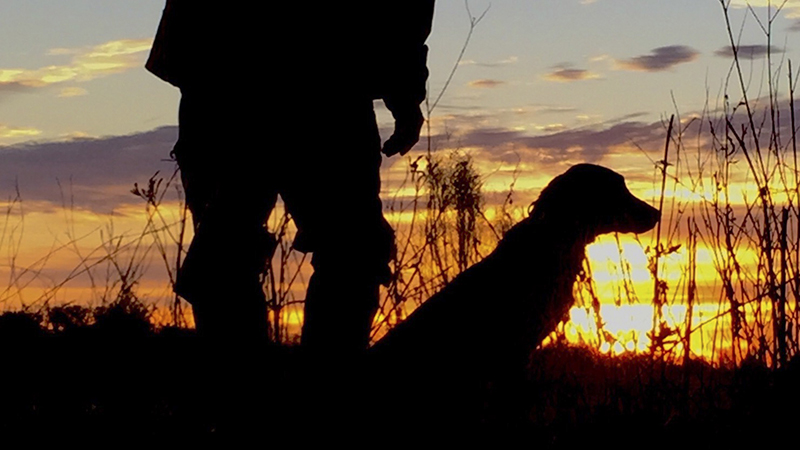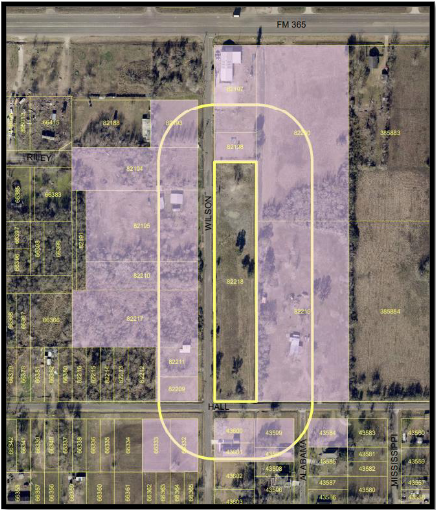BRIAN JOHNSON ON OUTDOORS: Still time to train your retriever
Published 12:07 am Tuesday, July 9, 2019

- If you're stuck at home because of the virus outbreak, now would be a good time to do some training with your dog. (Brian Johnson/Special to The News)
Does the idea of wading across a pond and sinking knee deep in mud sound appealing? How about running as fast as you can while wearing waders to chase after a cripple duck? Do you enjoy tripping in the marsh and falling into ice-cold water? Each of these is a very real possibility on a duck hunt if you don’t have a trained retriever. With only four months left until duck season, you still have just enough time to train your lab for the basics of duck hunting.
Before getting started, you will need a retriever that is at least four months old to start the training process. The dog can be older, but typically we don’t recommend starting formal training any younger than this. Always remember that just because a dog is a retriever breed it will not necessarily be a good duck retriever. You will need to start with a pup that has energy and a passion to fetch. You should be able to toss a tennis ball and the dog should chase after it naturally. Even if the dog doesn’t return it, as long as it chases it, you should be fine.
Assuming that you have the fore mentioned dog, you are ready to start. Knowing that you only have four months to work, I recommend that you dedicate at least 4 days per week to training. Training sessions should be done in the coolest part of the day this time of year. With our extreme Texas temperatures, be sure that your dog doesn’t overheat. Not only will overheating cause your dog to lose retrieving desire, it can also be bad for his health and possibly end in death. Keep your training sessions limited to 30 minutes or less.
Trending
Whole books have been written on how to train a retriever, and I would never be able to fit all of the necessary information in a newspaper article, so I am just going to give you a simple outline. If at any point in your training you have questions, feel free to contact me and I can coach you through.
Month 1: Basic on leash obedience and short hand tossed retrieves
During this time work your pup on a leash and pinch collar. Focus on the heel, here, sit, and stay commands. After each session, end with a short hand tossed retrieve. Make the retrieve fun and use a long leash to insure the pup returns.
Month 2: advanced obedience, water intro
During this time continue to work on the obedience until it becomes very solid. By the end of the month the pup should be doing this without a leash. Take this time to introduce the pup to water. Enter the water with pup. Start shallow and gradually work out deeper. Once pup is comfortable you can start doing his retrieves in the water.
Month 3: hand delivery and introduce to birds, decoys, boats, stands and guns
Trending
By now obedience should be very good and you should be able to trust that the pup will obey all basic commands. You should still start each session with obedience drills. Next make sure the pup will hold the bumper (object to be retrieved) without dropping it. If he drops it place it back in his mouth and say hold. The goal is to have him make the retrieve and hold the bumper until told to release. During this month, you will also want to introduce the pup to birds, guns, boats and dog stands. Here again, if you have any questions about this feel free to contact brian@duckdogtrainer.com.
Month 4: Tying it all together
Now that pup has been properly introduced to each of the elements, you will want to have him training in real hunting-like scenarios. Be sure to have someone throw the birds or bumpers from a direction where ducks are likely to come. Make this as realistic as possible. This is also a good time to add multiple retrieves. Throw some short and some long. During this month pay attention, look for deficiency and used additional training days to focus on these areas.
I realize that this is not a comprehensive training manual, but it should point you in the right direction. Always remember that patience and time are two big factors that will help you in this process. You can’t make a dog great in one day, but you can ruin one in one day if you lose patience. Steady wins the race. When I’m having a hard time with a dog, it always help me to realize how patient God is with me. Sometimes I am a slow learner.
Brian Johnson, originally of Port Neches, is pastor of First Baptist Church of Winnie, owner of DuckDogTrainer.com and outdoors writer for The News.






